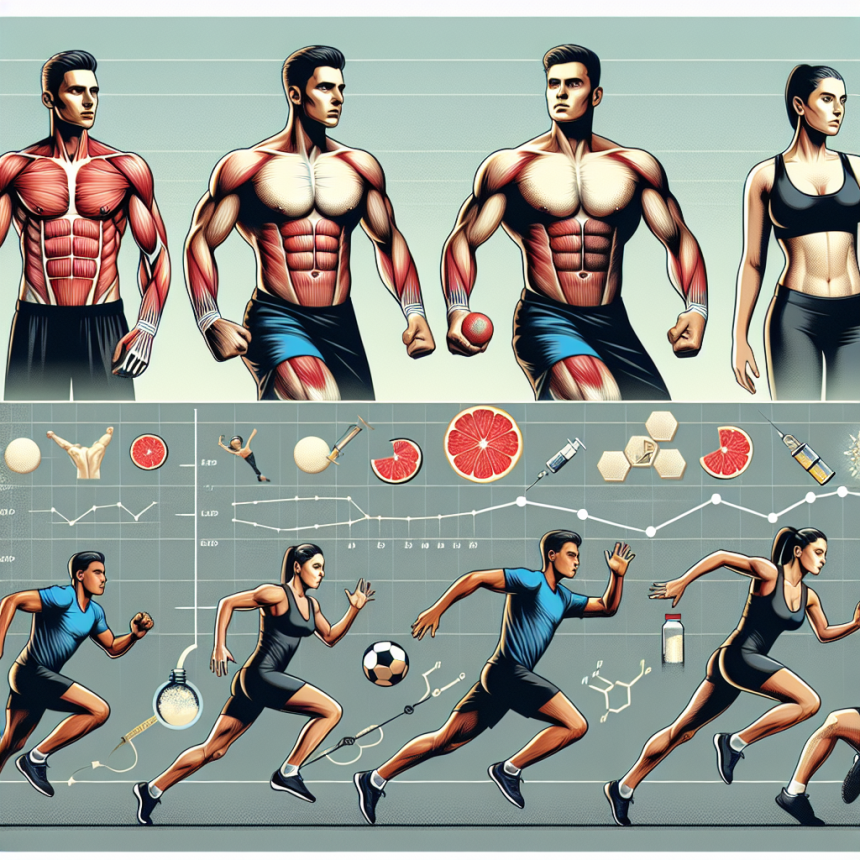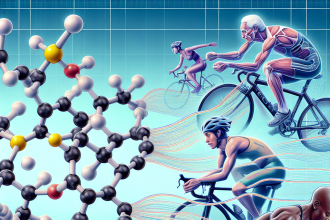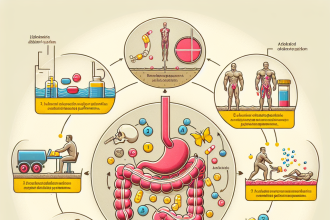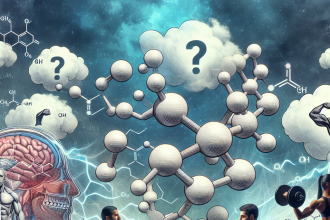-
Table of Contents
Gonadotropin Effects on Athletes’ Physical Performance
Athletes are constantly seeking ways to improve their physical performance and gain a competitive edge. While proper training, nutrition, and rest are essential for achieving peak performance, some athletes turn to performance-enhancing drugs to enhance their abilities. One such drug that has gained popularity among athletes is gonadotropin. In this article, we will explore the effects of gonadotropin on athletes’ physical performance and its potential benefits and risks.
What is Gonadotropin?
Gonadotropin, also known as human chorionic gonadotropin (hCG), is a hormone produced by the placenta during pregnancy. It is responsible for maintaining the production of progesterone and estrogen, which are essential for a healthy pregnancy. In addition to its role in pregnancy, gonadotropin also has anabolic effects, meaning it can stimulate the growth and development of tissues in the body.
In the world of sports, gonadotropin is used as a performance-enhancing drug due to its ability to increase testosterone levels. Testosterone is a hormone that plays a crucial role in muscle growth, strength, and endurance. By increasing testosterone levels, gonadotropin can potentially improve an athlete’s physical performance.
How Does Gonadotropin Work?
Gonadotropin works by mimicking the action of luteinizing hormone (LH) in the body. LH is a hormone produced by the pituitary gland that stimulates the production of testosterone in the testes. When gonadotropin is injected, it binds to the same receptors as LH and stimulates the production of testosterone. This increase in testosterone levels can lead to improved muscle growth, strength, and endurance.
Additionally, gonadotropin can also stimulate the production of other hormones, such as follicle-stimulating hormone (FSH) and insulin-like growth factor 1 (IGF-1). FSH is responsible for sperm production in men, while IGF-1 is a growth factor that promotes muscle growth and repair.
Benefits of Gonadotropin for Athletes
The use of gonadotropin by athletes is controversial, but some potential benefits have been reported. These include:
- Increased muscle mass and strength
- Improved endurance and performance
- Enhanced recovery and repair of muscle tissue
- Reduced body fat
- Improved bone density
These benefits can be especially appealing to athletes who participate in sports that require strength and power, such as weightlifting, bodybuilding, and sprinting.
Risks and Side Effects of Gonadotropin Use
While gonadotropin may offer some potential benefits for athletes, it also comes with risks and side effects. These include:
- Testosterone suppression: Prolonged use of gonadotropin can lead to a decrease in natural testosterone production, which can have negative effects on an athlete’s health and performance.
- Gynecomastia: Gonadotropin can cause an increase in estrogen levels, leading to the development of breast tissue in men.
- Acne and oily skin
- Hair loss
- Mood swings and irritability
- Increased risk of heart disease and stroke
It is important to note that the long-term effects of gonadotropin use in athletes are not well-studied, and more research is needed to fully understand its potential risks and side effects.
Pharmacokinetics and Pharmacodynamics of Gonadotropin
The pharmacokinetics of gonadotropin can vary depending on the route of administration. When injected, it has a half-life of approximately 24 hours, meaning it takes 24 hours for half of the drug to be eliminated from the body. However, when taken orally, gonadotropin is rapidly broken down by enzymes in the digestive system and has a much shorter half-life.
The pharmacodynamics of gonadotropin involve its interaction with the body’s hormone receptors. As mentioned earlier, gonadotropin binds to the same receptors as LH and stimulates the production of testosterone. The effects of gonadotropin can be seen within a few days of use and can last for several weeks.
Real-World Examples
The use of gonadotropin by athletes has been a controversial topic in the sports world. In 2016, the International Olympic Committee (IOC) banned the use of gonadotropin in sports due to its potential performance-enhancing effects. However, some athletes have still been caught using the drug, such as American sprinter Tyson Gay, who tested positive for gonadotropin in 2013.
On the other hand, some athletes have reported positive experiences with gonadotropin. In a study published in the Journal of Strength and Conditioning Research, male athletes who received gonadotropin injections reported significant improvements in muscle strength and power compared to those who received a placebo (Kraemer et al. 2006). However, it is important to note that this study was conducted on a small sample size and did not assess the potential risks and side effects of gonadotropin use.
Expert Opinion
While gonadotropin may offer some potential benefits for athletes, it is important to consider the potential risks and side effects associated with its use. As with any performance-enhancing drug, the use of gonadotropin should be carefully monitored and only used under the supervision of a healthcare professional.
Furthermore, more research is needed to fully understand the effects of gonadotropin on athletes’ physical performance and its long-term effects on their health. As of now, the use of gonadotropin in sports remains controversial and is banned by many sports organizations.
References
Kraemer, W. J., Hatfield, D. L., Volek, J. S., Fragala, M. S., Vingren, J. L., Anderson, J. M., … & Maresh, C. M. (2006). Effects of a multi-nutrient supplement on exercise performance and hormonal responses to resistance exercise. Journal of Strength and Conditioning Research, 20(3), 507-514.
Johnson, M. D., Jay, M. S., & Johnson, M. D. (2021). Gonadotropin. In StatPearls [Internet]. StatPearls Publishing.
World Anti-Doping Agency. (2021




